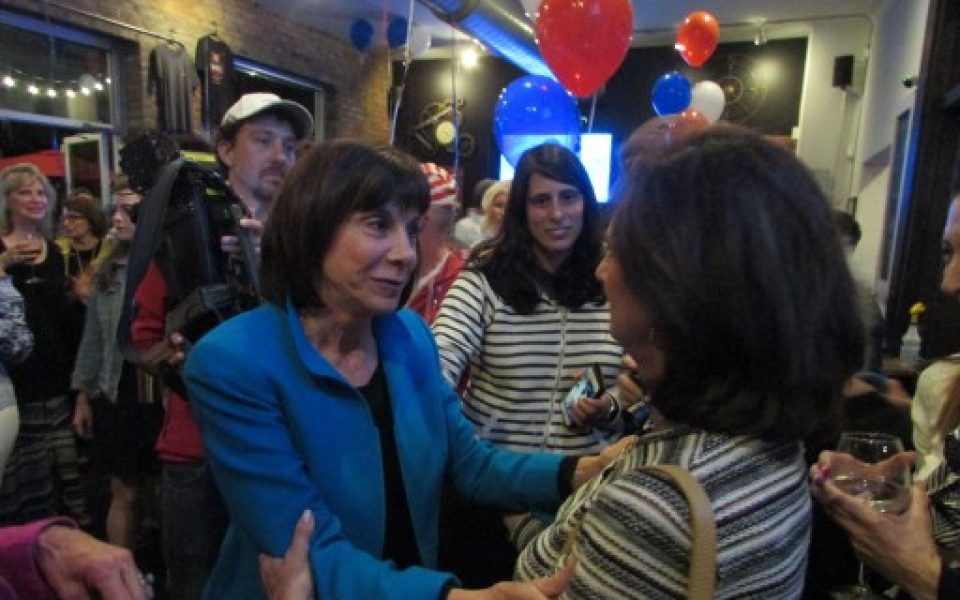Feeling good about the 2018 mid-term elections? (Maybe the more operative question is: Are you even aware that there are elections this year?)
If you answered yes to the first question, think about how you felt around this time in 2016.
Democrats and progressives were gloating that GOP primary voters could be so monumentally idiotic as to nominate a candidate with so much baggage. The Trump campaign was widely regarded as a trainwreck. Republican operatives were supposedly trying to figure out how to contain the damage so the party’s standard-bearer wouldn’t pull down the rest of the ticket. Even Republican Sen. Richard Burr’s re-election bid was thought to be in jeopardy, and with it Republican control of the Senate. Hillary Clinton couldn’t lose because the polling data said so, and she might even win the White House in a landslide.
The Democratic Party’s conventional wisdom barely skipped a beat after Trump’s 2016 upset win. It went from The voters will be so repulsed by Trump that they’ll flock to the Democratic ticket to After two years of Trump, the backlash will generate a huge blue wave to elect Democrats where they’ve never been elected before.
In its search for persuadable voters who are turned off by Trump’s flagrant dishonesty, corruption and misogyny, the Democratic Party has naturally turned to upscale suburbs, where higher educational attainment supposedly makes people more sensible and virtuous, and less susceptible to emotionalism. And to be fair, last year’s gubernatorial elections in Virginia and New Jersey, not to mention the surprise election of Doug Jones in Alabama’s special Senate race, lend some credence to this strategy.
Unfortunately, the suburban strategy won’t be enough for Democrats to flip either chamber of Congress or retake the White House. This approach amounts to settling for scraps from the meal that Trump has already consumed. Love him or hate him, Trump built a cross-class coalition of white people and even some non-white people who aspire to whiteness, anxious about a perceived loss of status to immigrants, Muslims, LGBTQ people and women, and persuaded them that they make up the vital center of a resurgent American nation family. Trump is resorting to the age-old playbook for demagogues whose countries are beginning to slip from their great-power status: Appealing to a supposedly idealized path while manufacturing a mythological foreign threat — in his case, the bogeyman is the vaguely anti-Semitic globalist bureaucrat — to rally people against.
A worthy opposition party would need take on the big issues in a manner that was as compelling and enthralling as the Trump show. The first challenge is to address the ugly forces of social division — white supremacy, Christian chauvinism, anti-LGBTQ bigotry and hatred of immigrants — of which Trump is both symptom and cause. But the opposition party can’t tackle the social issues without also addressing the rapid growth of wealth inequality, and the sobering implications of automation and the gig economy on workers’ ability to make ends meet. Doing something bold and imaginative about economic hardship, whether it’s in healthcare, student-loan relief, family support or early-childhood education, offers the only hope for cementing a new rural-urban coalition that might overcome the cultural divisions that Trump has so skillfully exploited.
Trump may or may not succeed at his domestic and international objectives. According to the narrative he’s set in motion, even if he fails he still succeeds. Even if he’s inherited a relatively strong economy, he can still wreck it with ill-advised trade wars. All the better to rally his followers against the myth of a shadowy globalist puppetmaster manipulating hordes of migrants and Islamic jihadists to undermine America. Imagine the kind of uncertainty, fear and resentment that Trump could harness if another recession on the order of the 2007 meltdown takes place.
Unfortunately, even if the Democratic Party leadership had the will to attempt reform, the party faces significant structural impediments that make it difficult to command majority support.
As Lily Geismer and Matthew D. Lassiter write in the Sunday New York Times, “The party has paid insufficient attention to the substantial policy costs of turning moderate and affluent suburbs blue. Democrats cannot cater to white swing voters in affluent suburbs and also promote policies that fundamentally challenge income inequality, exclusionary zoning, housing segregation, school inequality, police brutality and mass incarceration.
“The political culture of upscale suburbs revolves around resource hoarding of children’s educational advantages, pervasive opposition to economic integration and affordable housing, and the consistent defense of homeownership privileges and taxpayer rights,” the authors continue. “Indeed, unlike traditional blue-collar Democrats, white-collar professionals across the ideological spectrum — for example, in the high-tech enclaves of California and northern Virginia, which combined contain 15 of the most highly educated Congressional districts in the nation — generally endorse tough-on-crime policies, express little interest in protections for unions and sympathize with the economic agenda of Wall Street and Silicon Valley.”
Sorry to break the news, but old political rules don’t apply anymore. The pendulum is not going to swing back on its own accord, with voters deciding they’ve had enough Trump crazy and would like to try some normalcy for a change. The only road back for the Democratic Party is to embrace a radical overhaul with a new social contract. Is the party ready to make the journey?
Join the First Amendment Society, a membership that goes directly to funding TCB‘s newsroom.
We believe that reporting can save the world.
The TCB First Amendment Society recognizes the vital role of a free, unfettered press with a bundling of local experiences designed to build community, and unique engagements with our newsroom that will help you understand, and shape, local journalism’s critical role in uplifting the people in our cities.
All revenue goes directly into the newsroom as reporters’ salaries and freelance commissions.


Leave a Reply